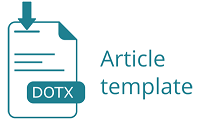A Continuity Of Care Model Based On Family Empowerment Improves The Family's Ability In Managing Hypertension Among Elderly
DOI:
https://doi.org/10.32807/jkp.v17i2.1183Keywords:
Continuity of Care, Hypertension, Family Ability, Family EmpowermentAbstract
Family empowerment in the early detection and monitoring of risk factors for hypertension among the elderly is very important because a family is the main support system and the best place and source of happiness for the elderly. Through continuous care (Continuity of Care/CoC), it is hoped that families will be able to assist the elderly in managing hypertension problems, to improve their health status and quality of life among the elderly. This study aims to determine the effect of the CoC model based on family empowerment in increasing family ability (knowledge, attitudes, and behavior) to manage hypertension among the elderly. The research was conducted in Denpasar City with a total sample of 62 people. The research design is a quasi-experiment with a control group design. Data analysis used t-test, Chi-Square, and Multiple Logistic Regression. The results showed that there were significant differences in the ability of families to manage hypertension in the elderly before and after applying the model to the intervention group, namely knowledge (p value=0.019), attitude (p value=0.002), and behavior (p value=0.003). Likewise, significant differences were found in the family's ability to manage hypertension in the elderly after the application of the model between the intervention and control groups, namely knowledge and attitudes (p-value = 0.001) and behavior (p-value = 0.002). The results of the multivariate test found that length of stay had an effect on family attitudes and work on family behavior in managing hypertension in the elderly, apart from the influence of the CoC model. Recommendation: the CoC model intervention based on family empowerment can be used as a form of intervention in empowering family potential so that it can assist the elderly in a community setting.
References
Azza, A., & Setyowati, T. (2015). Pemberdayaan Kesehatan Dan Ekonomi Perempuan Penderita HIV/AIDS Melalui Life Skill Education. Jurnal Ners, 10(1), 183– 188.http://dx.doi.org/10.20473/jn.v10i1.2158/ diakses Agustus, 4, 2021.
Cheng Y, Zhang L, Wang F, Zhang P, Ye B, Liang Y. (2017). The effects of family structure and function on mental health during China’s transition: A cross-sectional analysis. BMC Fam Pract. 2017;18(1). doi:10.1186/s12875 - 017 -0630 - 4 14.
Dharma, K.K., et. Al. (2021). Caregiver empowerment programs based on the adaptation model increases stroke family caregiver outcome. Frontiers of Nursing • 8(4) • 2021, DOI: 10.2478/fon-2021-0042.
Biro Komunikasi dan Pelayanan Masyarakat, Kementerian Kesehatan RI. (2019). Hipertensi Penyakit Paling Banyak Diidap Masyarakat. Dipublikasikan pada Temu Media memperingati Hari Hipertensi Dunia 2019 di Gedung Kementerian Kesehatan RI. Jumat, 17 Mei 2019.
Biro Komunikasi dan Pelayanan Masyarakat, Kementerian Kesehatan RI. (2021). Lansia Bahagia Bersama Keluarga. Seminar Nasional Kesehatan Lanjut UsiaTahun 2021, di Denpasar, Bali
Fadhlia , N., & Sari, R. P. (2021). Peran Keluarga Dalam Merawat Lansia Dengan Kualitas Hidup Lansia. Adi Husada Nursing Journal, Vol. 7 No. 2, Desember 2021/ Hal. 86 https://doi.org/10.37036/ahnj.v7i1.202.
Friedman, M. M., & Bowden, V. R. (2010). Family Nursing Research, Theory & Practice, 5th ed. New Jersey: Pearson Educational Inc,
Hutagalung, M.O., Haryanto, J., & Fauziningtyas, R. (2020). Pemberdayaan Keluarga Meningkatkan Self Efficacy dan Kualitas Hidup Lansia di Puskesmas Oebobo Kupang. Indonesian Journal of Community Health Nursing. Vol. 5, No. 2, Agustus 2020.
Kementerian Kesehatan RI. (2019). Laporan Nasional Riskesdas 2018. Jakarta: Badan Litbangkes Kemenkes.
Kemenkes RI. (2019). Laporan Provinsi Bali Riskesdas 2018. Lembaga Penerbit Badan Litbang Kesehatan. Jakarta.
Lestari, M., Natalya, N. P., Santosa, R. D., Puspitasari, N. P., & Perry, O. A. (2016). Makna Kemandirian Pada Pekerja Lansia Perempuan Bali. Konferensi: Persilangan Identitas, Agensi dan Politik (20 Tahun Jurnal Perempuan) (pp. 310-330). Jakarta: Ariom Swiss-Belhotel Kemang
Meliza, R., Budiawati Supangkat Iskandar, B. S., & Soemarwoto, R.S. (2019). Aspek Ekonomi Pada Kehidupan Perempuan Lanjut Usia: Studi Etnografi di Desa Demuk, Kecamatan Pucanglaban, Kabupaten Tulungagung. Jurnal Antropologi: Isu-Isu Sosial Budaya. Vol. 21 No. 01, June 2019.
Mulia, M. (2018). Pelaksanaan Tugas Keluarga Di Bidang Kesehatan: Mengenal Masalah Hipertensi terhadap Kejadian Hipertensi pada Lansia di Kelurahan Timbangan Kecamatan Indralaya Utara Kabupaten Ogan Ilir. Adi Husada Nursing Journal, Vol.4, No.2, Desember 2018.
Mustika, R., Sukmawati, & Suhendar, I. (2020). Pengetahuan Keluarga Tentang Hipertensi Pada Lansia. Jurnal Keperawatan BSI, Vol. 8 No. 2 September 2020. ISSN: 2338-7246, e-ISSN: 2528-2239 197 http://ejurnal.ars.ac.id/index.php/keperawatan/index.
Notoatmodjo, S. (2014). Metode Penelitian Kesehatan. Jakarta : Rineka Cipta
Peraturan Menteri Kesehatan No. 25 tentang Tahun 2016 Tentang Rencana Aksi Nasional Kesehatan Lanjut Usia Tahun 2016-2019.
Sakanashi, S., Fujita, K., & Konno, R. (2021). Components of Empowerment Among Family Caregivers of Community-Dwelling People With Dementia in Japan: A Qualitative Research Study. The Journal of Nursing Research, Vol. 29, No. 3, June 2021.
Stanhope, M & Lancaster, J. (2016). Public Health Nursing Population Centered Health Care in The Community. 8th Ed. St. Louise: Mosby
Uchiyama, S., Tsukada, N., &Sakuraba, T. (2015). The Family Support by Family Psychoeducation Based on EBP in CommunityMental Disabled Facilities. Kanto Gakuin University Journal of Nursing, 2, 11-20. United Nation.
Wang, et.al. (2020). Family Support, Multidimensional Health, and Living Satisfaction among the Elderly: A Case from Shaanxi Province, China. Int J Environ Res Public Health. 2020 Nov; 17(22): 8434.
Wibowo, D. A., & Zen, D. N. (2021). Hubungan Tingkat Pengetahuan Dengan Sikap Keluarga Tentang Perawatan Arthritis Rheumatoid Pada Lansia Di Desa Pamalayan. Jurnal Keperawatan Galuh, Vol.3 No.1 (2021). ISSN: 2656-4122 https://jurnal.unigal.ac.id/index.php/JKG/article/view/6578.
Yoon, H,K & Kim, G.S. (2020). An empowerment program for family caregivers of people with dementia. Public Health Nursing, vol 37, issue 2, p.222-233.
Yuniartika, W. & Muhammad, F. (2019). Family Support on the Activities of Elderly Hypertension Patients in Elderly Gymnastics Activities. Jurnal Ners,14(3si),354-357.doi:http://dx.doi.org/10.20473/jn.v14i3(si).17213.




